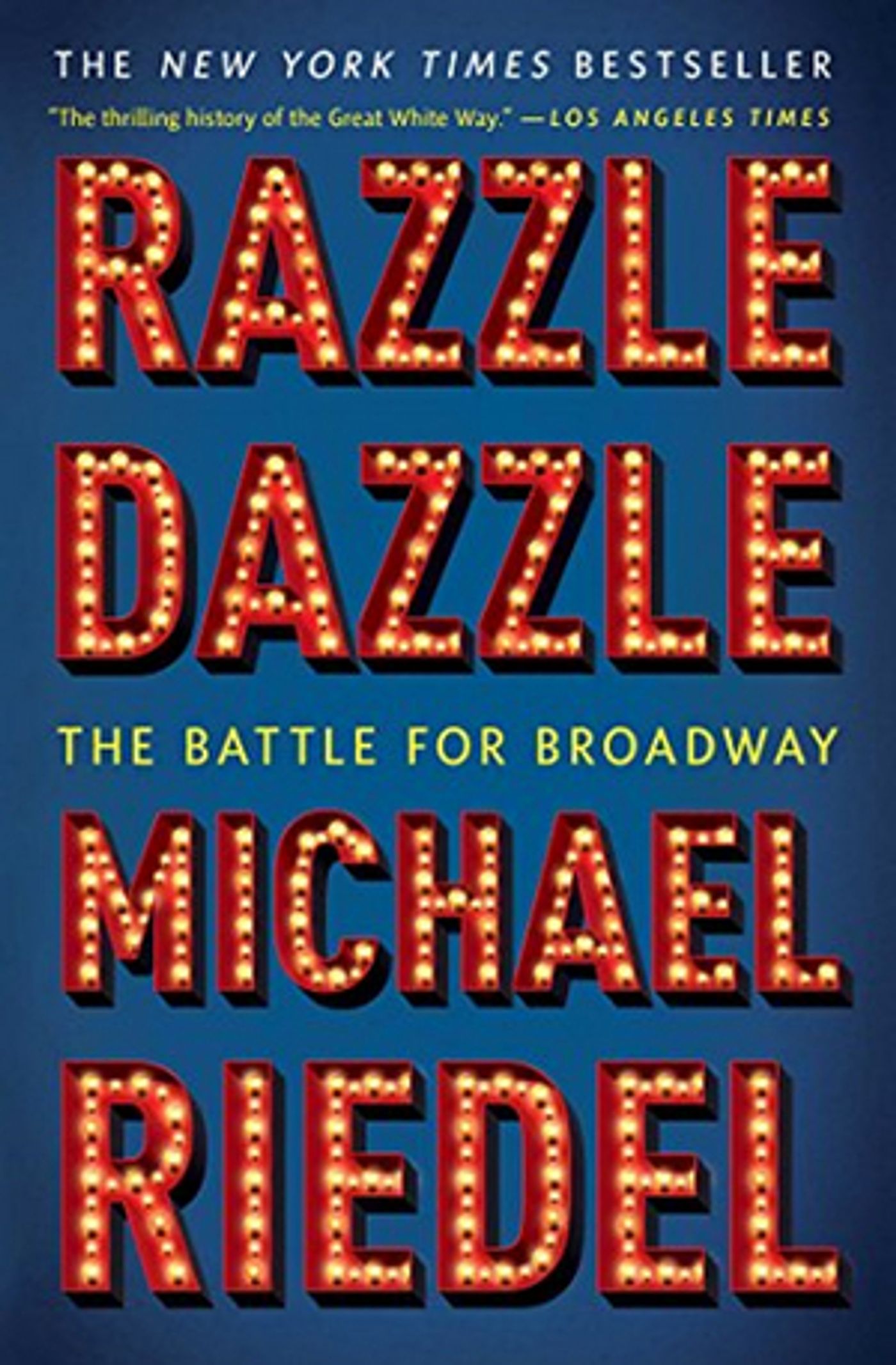BWW Book Club: Read an Excerpt From Michael Riedel's RAZZLE DAZZLE: THE BATTLE FOR BROADWAY

BroadwayWorld Book Club is officially off and running! Or should we say, reading!
Our current BroadwayWorld Book Club selection is Michael Riedel's Razzle Dazzle: The Battle for Broadway.
Join the Discussion:
Author Michael Riedel will be hosting a Facebook Live Q&A's for Book Club, so be sure to post questions for Michael Riedel on our Message Board HERE and on all BroadwayWorld social media!
Recap of Chapters 4, 5 & 6
If you would like to join the discussion, you can find a round-up of excerpts and fun facts from chapters 4,5 & 6 of the book below:
Excerpt from Chapter 4:
The Shuberts, by the late 1950s and early sixties had all but ceased to produce. Why bother? There were plenty of producers around to take the risk for them. David Merrick was at his height, cranking out show after show every season. Cy Feuer and Ernie Martin were producing such shows as 'How to Succeed in Business Without Really Trying', 'Silk Stockings', 'Little Me', and 'The Boy Friend'. Kermit Bloomgarden, a tough former accountant with taste (he backed 'Death of a Salesman' after other producers turned it down because they thought it too depressing), offered up 'The 'Most happy Fella', 'A View from the Bridge', and 'The Diary of Anne Frank'. Alexander H. Cohen, a splashy, free-spending promoter-turned-impresario, produced a show every season. Most were flops, but it didn't deter him. "Kid," he once said, "I've had a million and I've owed a million- and my lifestyle has never changed." Among his flops, though were gem - 'An Evening with Mike Nichols and Elaine May', 'Beyond the Fringe', and 'The School for Scandal', starring John Gielgud and Ralph Richardson. Richard Rodgers and Oscar Hammerstein were still at it, and in 1959 would come up with one of their biggest hits ever, 'The Sound of Music'. Robert Whitehead and Roger Stevens-rich gentleman producers-presented plays by Arthur Miller, Tennessee Williams, Terrence Rattigan, Eugene O'Neill, Shaw, and Shakespeare. Harold (Hal) Prince, who had begun his career as a stage manager for director George Abbott, was now emerging as a musical theater producer of the first order with 'The Pajama Game', 'Damn Yankees', 'West Side Story', and 'Fiorello!'
Excerpt from Chapter 5:
J. J.'s death profoundly altered the Shubert empire. Up until then, it had been a family business. But in his will, J. J. left most of his money- and all of his theaters- to a little-known charitable organization called the Sam S. Shubert Foundation. J. J. and Lee had set up the foundation in 1945 in honor of their brother. Its mission, broadly defined, was to give away money to scientific, literary, and educational causes. Its other mission was to squirrel away as much money as possible from the United States government. There was no law (as there is now) requiring foundations to give away at least 5 percent of their assets annually. "It was a wonderful way of putting money into limbo," said Lee Seidler, an accountant who joined the board of the Shubert Foundation in the 1990s.
And now the foundation controlled the theaters, which meant it controlled the Shubert empire. No one could ever own the theaters again. There would never be any equity in The Shubert Organization. From now on, anybody who ran The Shubert Organization would be an employee of the foundation and its board of directors. But a seat on that board would be a very nice plum indeed. And one day, Irving Goldman- "He had the charm of a guy who sells you used Chevrolet upholstery!"- would become the head of the Shubert Foundation.
Now join the discussion!
Videos


